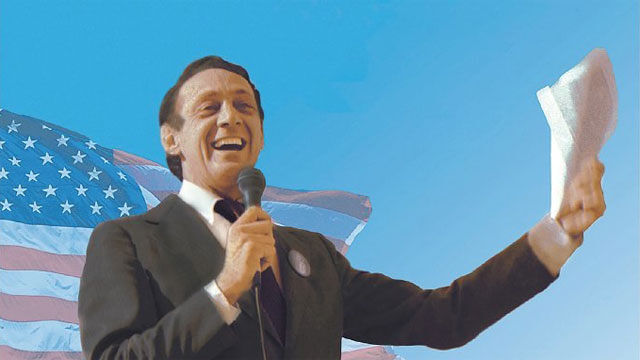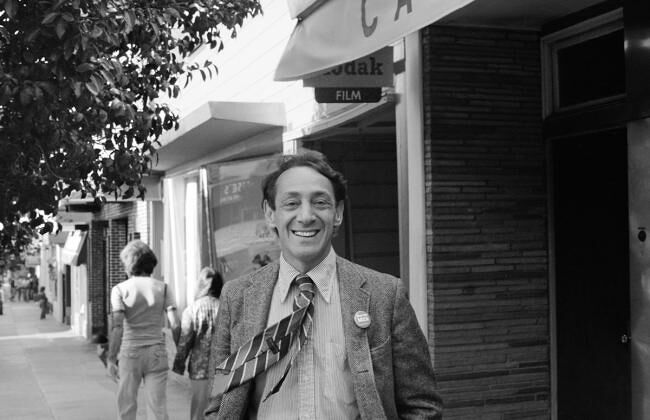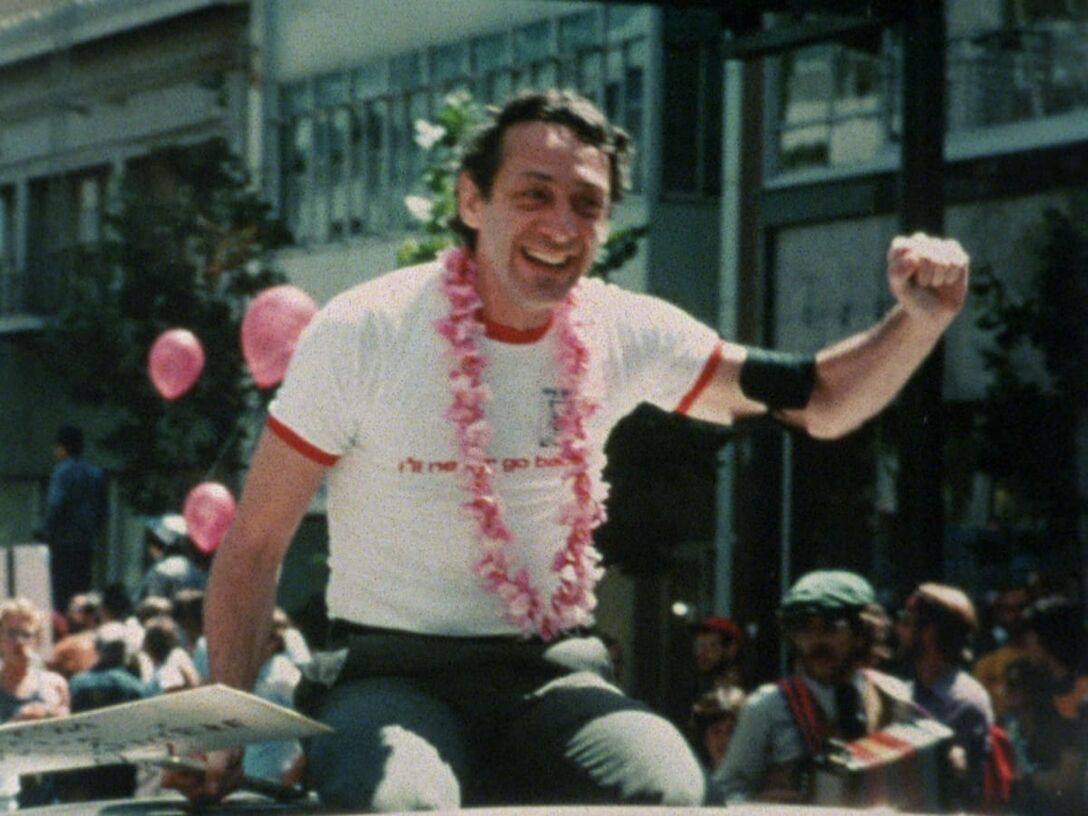This 4th Of July weekend, let’s celebrate a true American hero by revisiting ‘The Times Of Harvey Milk’
Over 40 years later, 'The Times Of Harvey Milk' stands as a sobering reminder of where we've been and where we are now.

Welcome back to our queer film retrospective, “A Gay Old Time.” In this week’s column, marking 4th of July weekend, let’s revisit the 1984 documentary that celebrated a true American hero, The Times Of Harvey Milk.
Queer visibility has dramatically expanded in all aspects of culture and public life over the last hundred years or so, from film and politics to sports and music. With this sudden mainstream recognition, we have gotten a lot of so-called “openly gay firsts”: the first openly gay person to win this or that award. The first openly gay person in such sport. The first openly gay person to hold this charge in office.
On one hand, it may feel strange and even a bit reductive to be labeled the “first” of something when we have always occupied these spaces, and it’s the society around us that has not allowed us to openly exist inside them. But on the other hand, the attention brought to these kinds of firsts have undoubtedly highlighted the continuing need for advocacy, and made powerful strides in our fight for equality.
This week, to celebrate the 4th Of July in a way that acknowledges the role that our community has played in the fabric of this country, we will be discussing two historic firsts: the story of the first openly gay man to be elected to public office in California, and the first gay-themed movie to win an Academy Award, which was also the first made by two openly gay filmmakers.
The Remarkable Mr. Milk

Harvey Milk is without a doubt one of the most important figures in American history. He was a well-known presence in the local politics of the Castro District in San Francisco during the 1970s, and in 1978 he became the first openly gay man in California to be elected to public office when he joined the San Francisco Board of Supervisors.
He was a staunch supporter of the rights of all minorities in the city, not just the queer community, and sponsored a groundbreaking bill banning discrimination based on sexual orientation in public accommodations, housing, and employment.
His life took a tragic turn when he was assassinated in November 1978 by former member of the board Dan White, alongside San Francisco mayor George Moscone. His heartbreaking loss and the practically non-existent consequences that White faced not only exposed the undercurrent of prejudice and homophobia that existed within government agencies and the public at large, but also brought gay issues and visibility to a national spotlight; a spotlight that empowered the ongoing fight for civil rights and whose effects we still feel to this day.
Milk’s story is a remarkable one, both tragic and inspiring in how open queerness on a national platform can directly lead to real life, tangible changes on policy, and on the minds of the mainstream population. His life has been the subject of many biographies, operas, theater plays, and even children’s books. His name has adorned everything from high schools to military ships (even though the current administration stripped it in the last weeks), and President Barack Obama awarded him a posthumous Presidential Medal of Freedom in 2009.
Many more people probably became aware of him on a global scale thanks to the 2008 film Milk, for which Sean Penn won an Oscar for portraying him. But almost 24 years before it, another film that would also go on to Oscar glory centered Milk for an audience much larger than his story had been able to reach thus far.
Related
Pete Hegseth gets totally dragged after revealing new name for Harvey Milk ship
Meanwhile, California Governor Gavin Newsom quotes Harvey Milk to mark Pride Month.
Documenting History
The Times Of Harvey Milk is a film made in 1984 by legendary queer documentarian Rob Epstein (who also directed iconic queer films like Common Threads: Stories From The Quilt and The Celluloid Closet alongside frequent collaborator Jeffrey Friedman) which details Milk’s rise in the local political scene of San Francisco, the effect he had on policies and queer activism, and the aftermath of his assassination.
As far as documentaries go, it’s pretty straight forward and traditional in the way that it weaves archival footage with talking head interviews of those who were closest to him. It presents Milk’s story in a clear, concise, and approachable way for both the people that were already familiar with his story, as well as those that were just learning about him.
The film was released only six years after Milk’s assassination, and you can feel the freshness of the emotional wounds that his death left in not only his personal acquaintances, but the country and the state of queer activism as a whole. Even watching more than 40 years later, there’s a palpable urgency and timeliness to his story and how people react to it. Almost as if many of the issues and prejudices that he had to face have come back to stare us in the face again.
A True American Hero

The Times Of Harvey Milk went on to win the Academy Award for Best Documentary Feature in 1984. With it, it became the first gay-themed movie to win the award, and Epstein the first openly gay filmmaker to receive it. In his speech, he thanked “his partner in life” as well as Harvey Milk himself for “for reminding us that it’s possible to live life with a sense of social responsibility and a sense of humor.”
In the close to five decades since Harvey Milk’s short but impactful political career, and the film’s Oscar win, huge leaps have been made in terms of queer visibility and representation in both the political landscape of the country, and films in Hollywood. There have been openly lesbian governors, a trans member of Congress, and a gay presidential candidate. Movies with queer themes have won in many major categories at the Oscars, and actors are slowly but surely able to openly live in their identities.
But this film, and the story of Harvey Milk in general, serves as a well-timed reminder that it wasn’t that long ago that being the first to do so was unheard of; it was a radical and life-risking act. The unnerving sense of relevance is also a warning that these issues have not gone away completely, and that it is our duty to keep alive the values and impetus of advocacy that have turned Harvey Milk into an immortal figure. Happy Fourth of July.
The Times Of Harvey Milk is currently streaming on Amazon Prime Video, The Criterion Channel, and (HBO) Max, and is available for digital rental or purchase via AppleTV.
Related
WATCH: That time Ian McKellen delivered Harvey Milk’s powerful ‘Hope Speech’
Milk’s words called out the persecution of gay people in the name of family values. Sound familiar?

 Mark
Mark 





